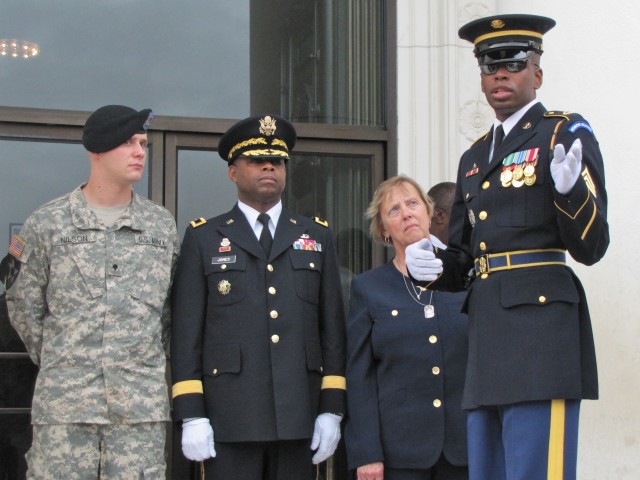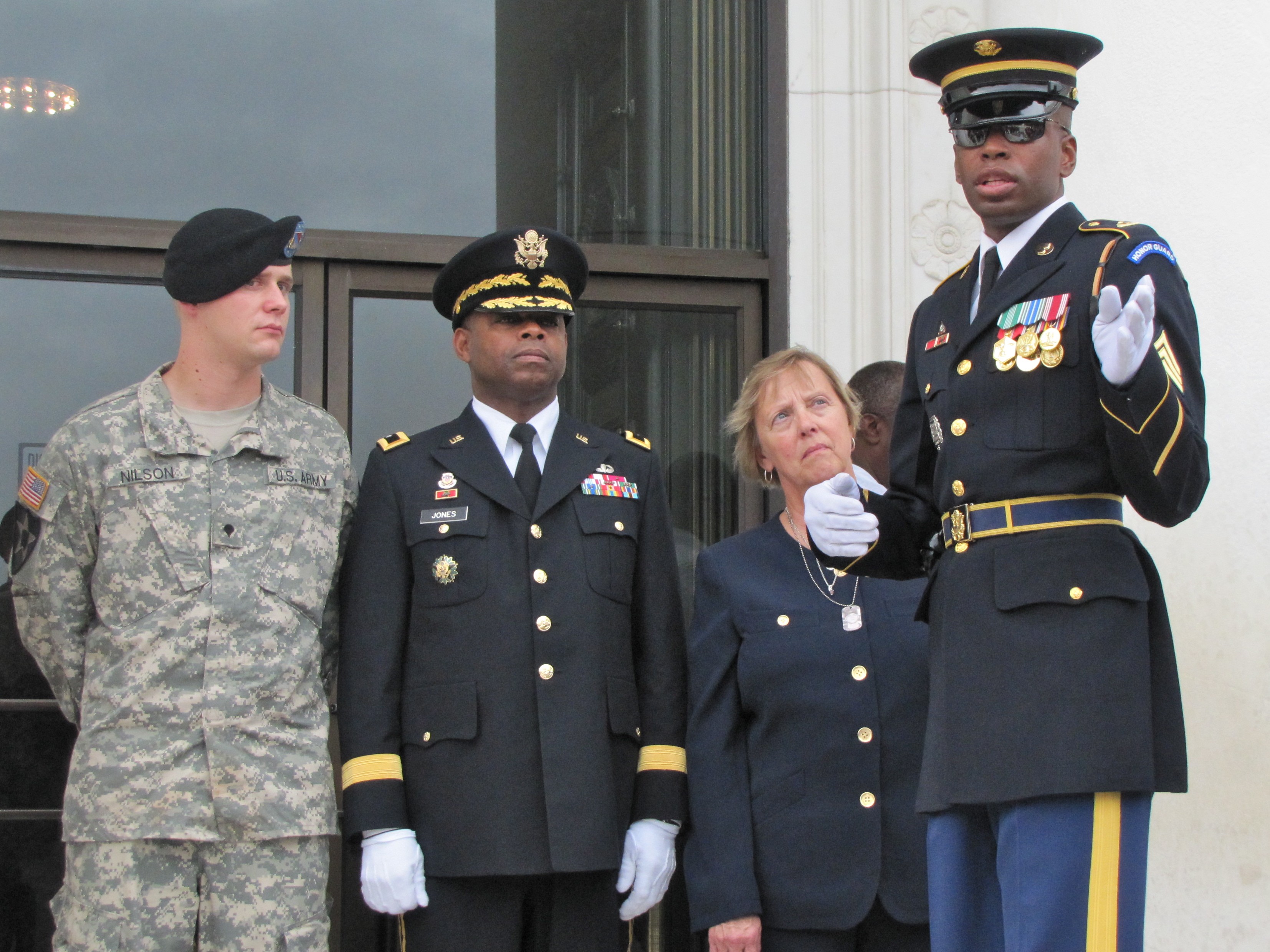WASHINGTON, DC - On Wednesday, Oct. 27, The Association of the United States Army presented an inaugural Family Forum titled, "America's Families - Caring for our Survivors," during its annual meeting and exposition.
Senior Army leaders participating in the forum included Chief of Staff of the Army Gen. George W. Casey Jr., who was joined by his wife Sheila, as well as Lt. Gen. Rick Lynch, Commander of the Installation Management Command and Assistant Chief of Staff for Installation Management and Maj. Gen. Reuben D. Jones, Commanding General of the Family and MWR Command.
"Survivors deserve a network of comprehensive support," Jones said. "We will search tirelessly to find assistance for our Survivors and provide them with the support they need."
Earlier in the day, Jones traveled to Arlington National Cemetery where he, Carolyn Maupin, who lost her son Staff Sgt. Matthew Maupin in Iraq, and a battle buddy of a fallen Soldier laid a wreath with other survivors at the Tomb of the Unknowns in honor of all surviving Family members of fallen warriors.
Because everyone grieves in their own way, some of the survivors in town this week to attend the SOS Army Family Action Plan Summit chose not to attend the wreath laying ceremony.
But they all traveled to the AUSA survivor's forum where they were honored by senior Army leaders and AUSA Family Programs Director Sylvia Kidd.
Although pulled together on short notice, Kidd, with the help of SOS Program Managers Donna Engeman and Hal Snyder, was ready for the survivors when they arrived.
"It really was not difficult at all, because it fits right in with our mission to articulate and support the needs and interests of all Army Families who are experiencing higher levels of stress due to frequent separations, repeated deployments and loss," Kidd said.
Army Chief of the Staff Gen. George W. Casey, Jr., opened the meeting by saying that what the Army is doing for survivors cannot be a cookie-cutter program, but must be able to deal with the long process of grieving.
"Yes, SOS is in its infancy," he said. "We began with an idea, to bring survivors in who could speak about their own process and how to make it better. After a few years of annual summits, this year, the SOS workgroups worked long hours to refine and articulate eight issues that will be presented in January at the Army Family Action Plan conference.
"We've come a long way," Casey said.
Deborah H. Tainsh, a Gold Star mom and author of "Heart of a Hawk," lost her son, Sgt. Patrick Shannon Tainsh on Feb. 11, 2004, when he was killed in Baghdad, Iraq. She thanked the general for all his work.
"I spent the last two days pounding these issues, working hand-in-hand with subject matter experts and I want to thank YOU for all you've done," she said.
Certain issues still resonated and none of the SOS survivors who had attended the SOS AFAP summit were shy to speak up.
"The Army needs to help Soldiers be better prepared," said one participant. "We need to prepare for the unthinkable. My husband Mark and I discussed his death and planned his funeral. All I had to do was implement it. I've had so many Families tell me they don't know how to begin or what to talk about."
Gen. Casey responded by explaining it's hard to have an Army program for personal decisions, but "we we are taking on the training to help with planning," Casey said.
Many Soldiers are still reluctant to ask for help, or to face difficult planning decisions, he explained, and the Army is working diligently to remove the stigma that those Soldiers associate with asking for help.
"When I began as Chief of Staff, 90 percent of our Soldiers wouldn't admit to a problem for fear of losing their career," Casey said. "Now that number is 50 percent..."
At the conclusion of his remarks, Jones unveiled a newly created SOS logo, reiterating his personal commitment to caring for survivors.
"When I meet with survivors, the thing I tell them is that we will never, ever leave them behind," Jones said.
"And I mean it."


Social Sharing